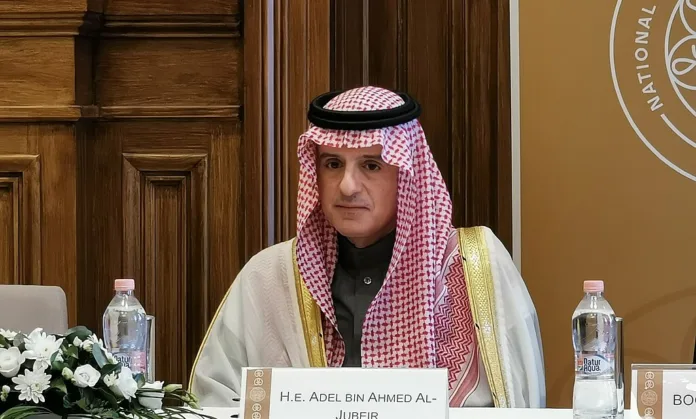At the Saudi Green Initiative Forum, climate envoy Adel Al-Jubeir announced the Kingdom’s expanded efforts for Saudi Land Protection 2030
Saudi Arabia is accelerating its environmental protection goals, with plans to designate 30% of its land and sea territories as protected areas by 2030, up from 20% today and a mere 3% a decade ago. Adel Al-Jubeir, Minister of State for Foreign Affairs and Climate Envoy, made the announcement during the “Climate Envoy Perspective” panel at the 4th Saudi Green Initiative Forum in Riyadh.
“We are protecting 30 per cent of our territory,” Al-Jubeir stated, highlighting the Kingdom’s commitment to conserving biodiversity and managing resources sustainably. “The fact is, 10 years ago, only 3 per cent of our land was protected. Today, it’s 20 per cent, and by 2030, it will reach 30 per cent.”
The initiative forms part of Saudi Arabia’s broader efforts to combat climate change and aligns with its Vision 2030 goals. It also includes measures for sustainable fishing in the Red Sea and the Gulf, ensuring minimal impact on marine ecosystems. Notably, tourism projects along the Red Sea are being developed with rigorous environmental standards to protect marine biodiversity.
Saudi Arabia’s commitment extends beyond its borders. Al-Jubeir emphasized the importance of global cooperation, highlighting the Kingdom’s support for international initiatives, including the adoption of circular carbon economy practices. “We believe land degradation is not just an environmental issue but a global security issue, as it affects food production and migration patterns,” he said.
Embed from Getty ImagesThe minister pointed to the economic benefits of sustainability, noting that investment in renewable energy and eco-conscious tourism is both environmentally and financially advantageous. “For every dollar spent on restoring land, the returns range from $7 to $30. Investing in solar and wind energy is sustainable and economically beneficial,” he explained.
Saudi Arabia is poised to generate 50% of its electricity from renewable sources by 2030, with the remainder coming from natural gas. The Kingdom has launched more than 80 initiatives focused on carbon capture, urban redesign, waste-to-energy projects, and reforestation.
“We are an example for the world in terms of energy efficiency and renewable energy,” Al-Jubeir said, stressing collaboration over blame in addressing global climate challenges. “By working together, pooling resources, and leveraging technology, we can overcome the climate challenges we face.”
As Saudi Arabia transitions from a leading oil and gas producer to a global pioneer in renewable energy, it aims to showcase that environmental stewardship can coexist with economic growth. “Clean water, clean air, and sustainable tourism make investments more attractive,” Al-Jubeir concluded, adding that the Kingdom is setting an example of how environmental sensitivity enhances economic prosperity.
